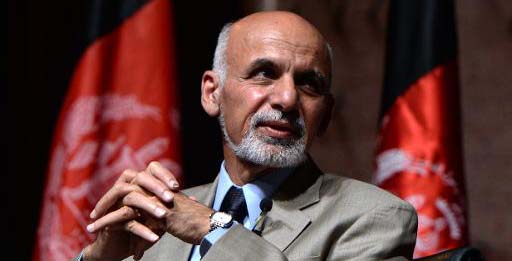There are intricate and complex challenges to the National Unity Government in Afghanistan, one of which are how to bring the insurgent groups in the mainstream politics, in order to overcome the labyrinthine security situation and turbulence in the country. In his recent past visit to the US, one of his major demands was to seek US support for the peace talks with the Taliban. The reconciliation of Pakistan and China between the Taliban and the Afghan government is a major part of those efforts started by Ghani.
Similarly, when Ghani demanded the US support for peace talks with the Taliban, in response, the US put forward three main conditions to be considered while making an agreement with the Taliban, which are: First, the Taliban should cut off their relations with Al-Qaeda. Second, the Taliban should stop anti-US and anti-state activities in Afghanistan. Third, women, minorities and human rights should be protected while making complicit with the Taliban.
Notably, at present, the ground is ready to make success of this reconciliatory process because of these veritable factors: First, the US exit (although not completely) escalated pep in the said process which was previously dodgy in the presence of US and coalition forces. The withdrawal of the foreign forces from Afghanistan has been remaining one of the major demands of the Taliban. Earlier, in the previous government of Hamid Karzai, the Taliban were demanding the withdrawal of the foreign forces from Afghanistan when the Taliban had set up an office in Qatar.
Second, the herculean efforts and realistic approach of the President, Ashraf Ghani has inclined the Taliban to come on to the negotiation table with the Afghan government. Indeed, there is need for a multi-ethnic broad based government in Afghanistan; for this purpose, therefore, the Afghan government intends to appoint the Taliban governors in three southern provinces i.e. Helmand, Nimruz and Kandahar.
Third, Pakistan interest in Afghan peace process is also a vital factor. Last month, Pakistan’s advisor on Foreign Affairs and National Security, Sartaj Aziz said, “We are playing the role of facilitator and are persuading the groups which are in contact with us”. This statement shows that Pakistan is interested in the Afghan peace talks and also making backdoor contacts with the Taliban’s leadership.
Fourth, Pakistan’s practical steps against extremism and terrorism have awakened a sense of fear in the extremist factions. Furthermore, Pakistan is not willing to tolerate these elements in her areas especially in FATA. Operation, Zarb-e-Azb has not only considerably dismantled the Taliban from North Waziristan but also shows Islamabad’s commitment to eliminate terrorism from the country. Now, the Taliban have realized that Afghanistan is the only sphere of influence for them, where Afghan National Security forces are getting strength to cope with the anti-state elements. These factors have also their role in the initiation of Afghan peace talks.
Fifth, China’s efforts cannot be neglected. China has been remained neutral throughout their history in Afghanistan in term of interference. China has their own interests in Afghanistan’s peace and stability as China wants to pursue her economic interests as well as to counter Xinjiang insurgency. Afghanistan’s insurgency has serious repercussions for Xinjiang insurgency which is considered a threat to China’s integrity. Additionally, for China-Pakistan Economic Corridor (CPEC), peace in the region is pre-requisite which China would like to attain at any cost. Therefore, China will try her best for the success of Afghan peace talks.
Despite of the above-mentioned favorable conditions, there are some factors which could create a stalemate in these proposed peace talks. In the first place, the Taliban’s demand of withdrawal of the foreign forces, yet, has not been completely fulfilled. In this connection, a source close to the Taliban’s leadership said, the presence of some foreign troops beyond 2014 in Afghanistan could be the main impasse. However, this impasse could be removed by giving extra concessions to the Taliban.
Obviously, the Taliban will likely ask for guarantors before starting negotiations with the Afghan government. Constitutional immunity from prosecution will be an immediate demand of the Taliban. Albeit, initially, if both the parties, the Taliban and the Afghan government succeeds to carry on this peace process; the other groups, i.e. Hizb-e-Islami would try to spoil this process as being left out in these peace talks.
At present, instead of US, China and Pakistan are involvement in peace talks between the Taliban and the Afghan government. Pakistan’s Chief of Army Staff (COAS), General Raheel Sharif during his visit to Kabul in February communicated the Taliban’s willingness to talk to the Afghan government. Pakistan could play a positive role in this peace process.
On one hand, the success of these peace talks depend upon the Afghan government, on the other hand, the Taliban leadership should also show some flexibility in its stance. The peace and stability is fundamental to the survival of Afghanistan as one unit and also for the government which is still struggling with internal strife and failures to overcome security lapses. Durable peace only returns once the grievances of the insurgents are fully addressed. In the shape of success in these negotiations, it will not only stabilize Afghanistan but will also bring peace and stability in the entire region.

